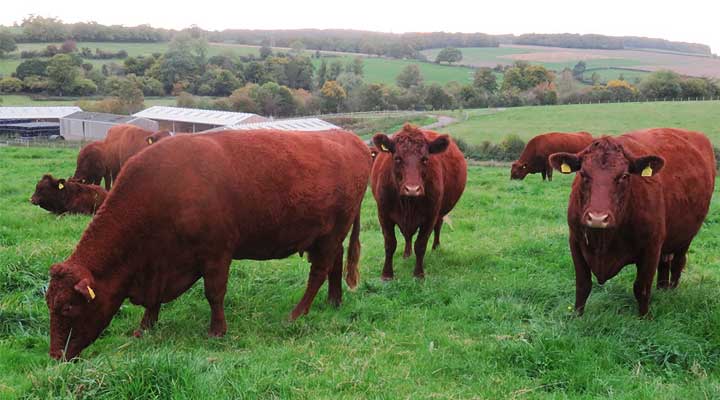PFLA lobbying hard for 100% grass-fed definition

The labeling of meat as ‘grass-fed’ is becoming more common in shops and restaurants, reflecting increasing consumer interest in grass-fed produce.
However in the UK, the term ‘grass-fed’ has not been clearly defined and can be applied to animals that have been fed predominantly grass. This means their diets may have been made up of as little as 51% pasture or conserved forage – and grains making up the rest.
Wholly grass-fed meat has been shown to have beneficial human nutritional, animal welfare and environmental properties, which any amount of grain feeding negates.
Misleading
In a consumer survey carried out for the PFLA in 2017, 93% of around 600 respondents agreed or strongly agreed, that labeling laws suggesting the term grass-fed can be applied to animals that have only been fed grass for 51% of their lives, could be misleading and needs to be changed.
Providing a robust definition of grass-fed meaning 100% grass-fed, backed by Defra and the Food Standards Agency (FSA), will help protect consumers and the farmers who are committed to producing 100% grass-fed meat and dairy. Read the PFLA’s evidence paper presented to Defra here.
PFLA action
The PFLA has been lobbying hard over the past few months to raise this issue with lawmakers and lobby groups. It has been supported by like-minded organisations such as the ‘Eating better’ campaign, which produced a Vlog with PFLA member Fidelity Weston talking about different food labels.
In the summer, 100% pasture-fed farming received a boost from the honest labeling campaign, involving Compassion in World Farming, when it placed pasture-fed farming at the top of its labeling matrix, above organic and free range.
Meetings with Defra
PFLA board members have since been in talks with George Eustice MP and members of the Defra team about levels of grass feeding, urging them to adopt a ‘grass-fed means 100% grass-fed’ stance. This would help consumer understanding and assist the market for certified Pasture for Life meat and dairy. It would also increase the number of farmers delivering the public goods that Defra wants to see in its 25-year environmental plan and which it agrees ‘Pasture for Life’ standards deliver against.
There is ongoing discussion about how Pasture for Life farmers can help develop the proposed Environmental and Land Management Scheme (ELMS), with the Minister expressing his wish for some certified farmers to be included in a pilot project. Ideas are being developed and hopefully a PFLA proposal to help shape the future of ELMS will be accepted in the second round of submissions early in 2019.
The PFLA welcomes the Minister’s support for what is being achieved by Pasture for Life farmers and is encouraged by the direction of travel proposed under the new UK Agriculture policy.



